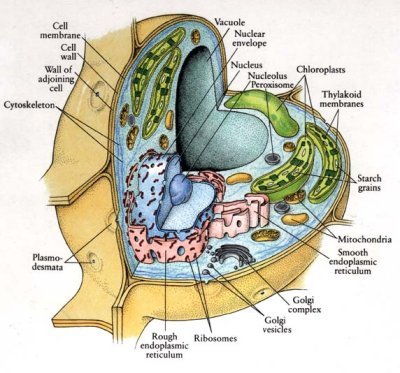| 正面 | 897.cell 英 [sel]美 [sɛl]     |
|---|---|
| 背面 |      释义: 1. sed- / sid- => seat.n. 细胞;电池;蜂房的巢室;单人小室vi. 住在牢房或小室中n. (Cell)人名;(英)塞尔 例句: 1. Three prisoners were sharing one small cell 3 metres by 2 metres.3个囚犯关在一个3米长2米宽的小牢房里。 cell 细胞,小室来自PIE*kel, 隐藏,遮盖,词源同cellar, ceiling, hole. 即隐藏的小室,细胞义因其小室状结构而得名。比较cytology, 细胞学。 cellcell: [12] Cell has branched out a lot over the centuries, but its original meaning seems to be ‘small secluded room’, for it comes ultimately from an Indo-European base *kel-, which is also the source of English conceal, clandestine, and occult. It came into English either via Old French celle or directly from Latin cella ‘small room, storeroom, inner room of a temple’, and at first was used mainly in the sense ‘small subsidiary monastery’.It is not until the 14th century that we find it being used for small individual apartments within a monastic building, and the development from this to ‘room in a prison’ came as late as the 18th century. In medieval biology the term was applied metaphorically to bodily cavities, and from the 17th century onwards it began to be used in the more modern sense ‘smallest structural unit of an organism’ (the botanist Nehemiah Grew was apparently the first so to use it, in the 1670s).A late Latin derivative of cella was cellārium ‘group of cells, storeroom’; this was the source of English cellar [13], via Anglo-Norman celer.=> apocalypse, cellar, clandestine, conceal, hall, hell, hull, occultcell (n.)early 12c., "small monastery, subordinate monastery" (from Medieval Latin in this sense), later "small room for a monk or a nun in a monastic establishment; a hermit's dwelling" (c. 1300), from Latin cella "small room, store room, hut," related to Latin celare "to hide, conceal." The Latin word represents PIE root *kel- (2) "to cover, conceal" (cognates: Sanskrit cala "hut, house, hall;" Greek kalia "hut, nest," kalyptein "to cover," koleon "sheath," kelyphos "shell, husk;" Latin clam "secret;" Old Irish cuile "cellar," celim "hide," Middle Irish cul "defense, shelter;" Gothic hulistr "covering," Old English heolstor "lurking-hole, cave, covering," Gothic huljan "cover over," hulundi "hole," hilms "helmet," halja "hell," Old English hol "cave," holu "husk, pod"). Sense of monastic rooms extended to prison rooms (1722). Used in 14c., figuratively, of brain "compartments;" used in biology by 17c. of various cavities (wood structure, segments of fruit, bee combs), gradually focusing to the modern sense of "basic structure of living organisms" (which OED dates to 1845). Electric battery sense is from 1828, based on original form. Meaning "small group of people working within a larger organization" is from 1925. Cell body is from 1851; cell division from 1846; cell membrane from 1837 (but cellular membrane is 1732); cell wall from 1842." |